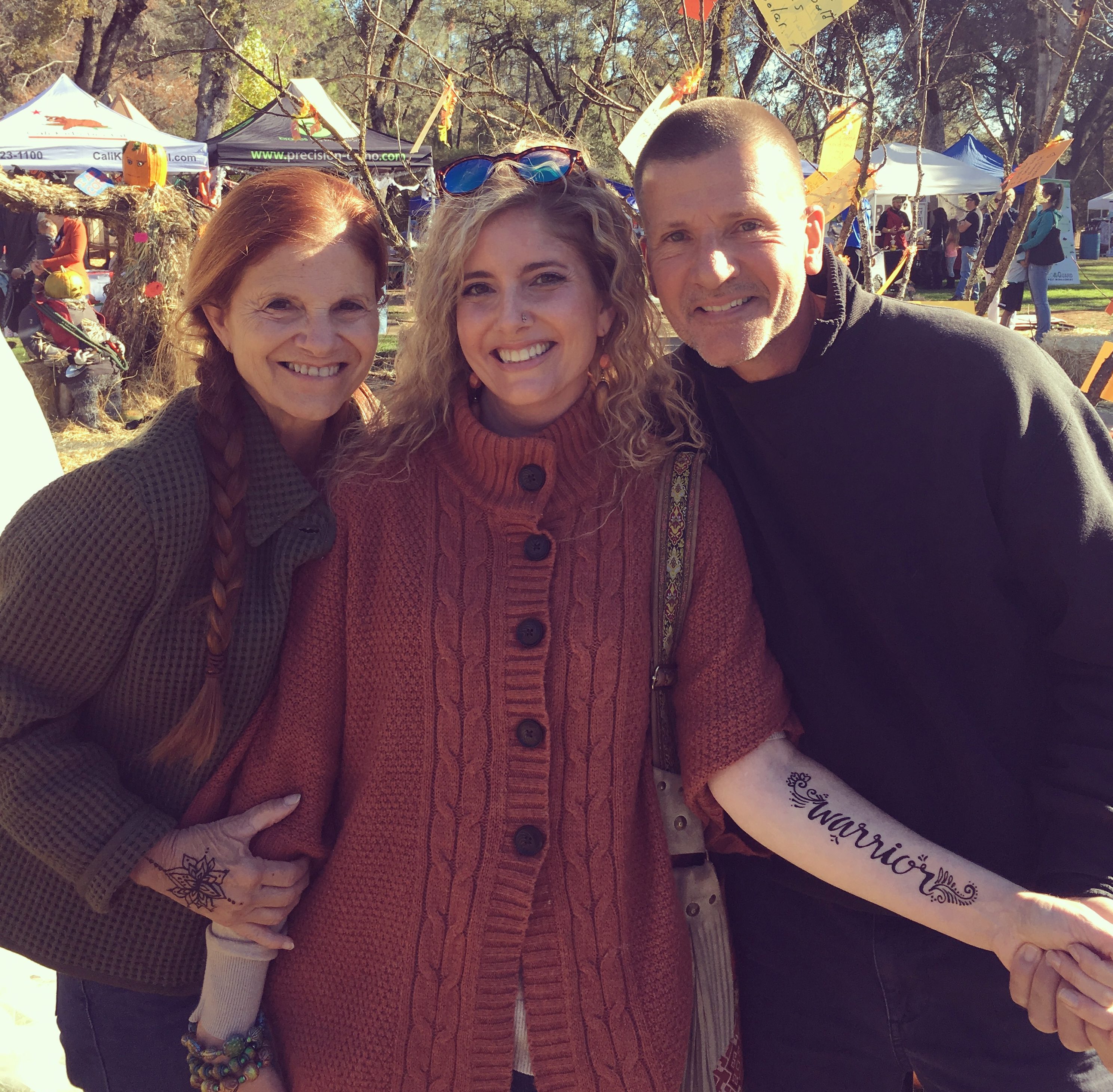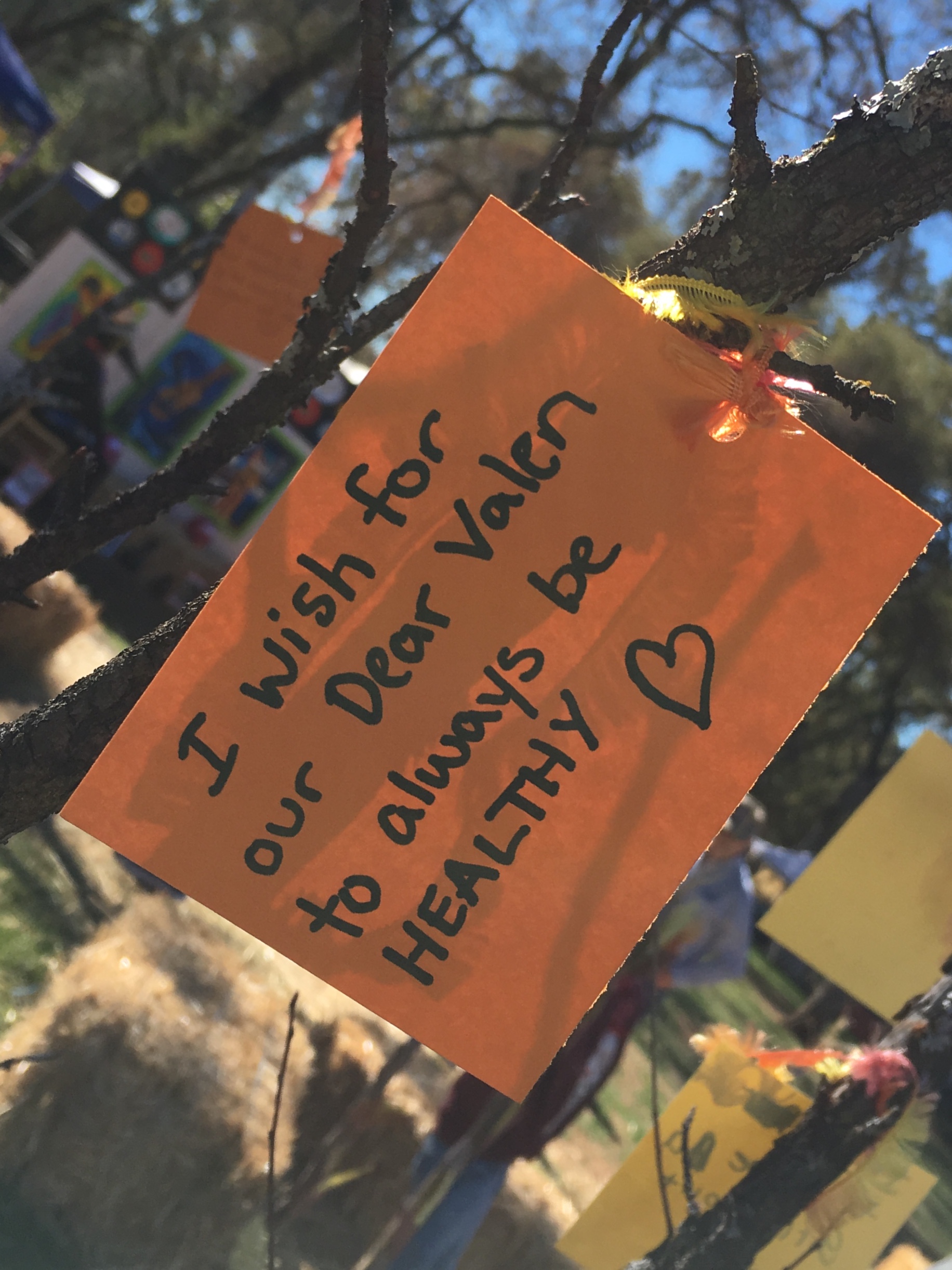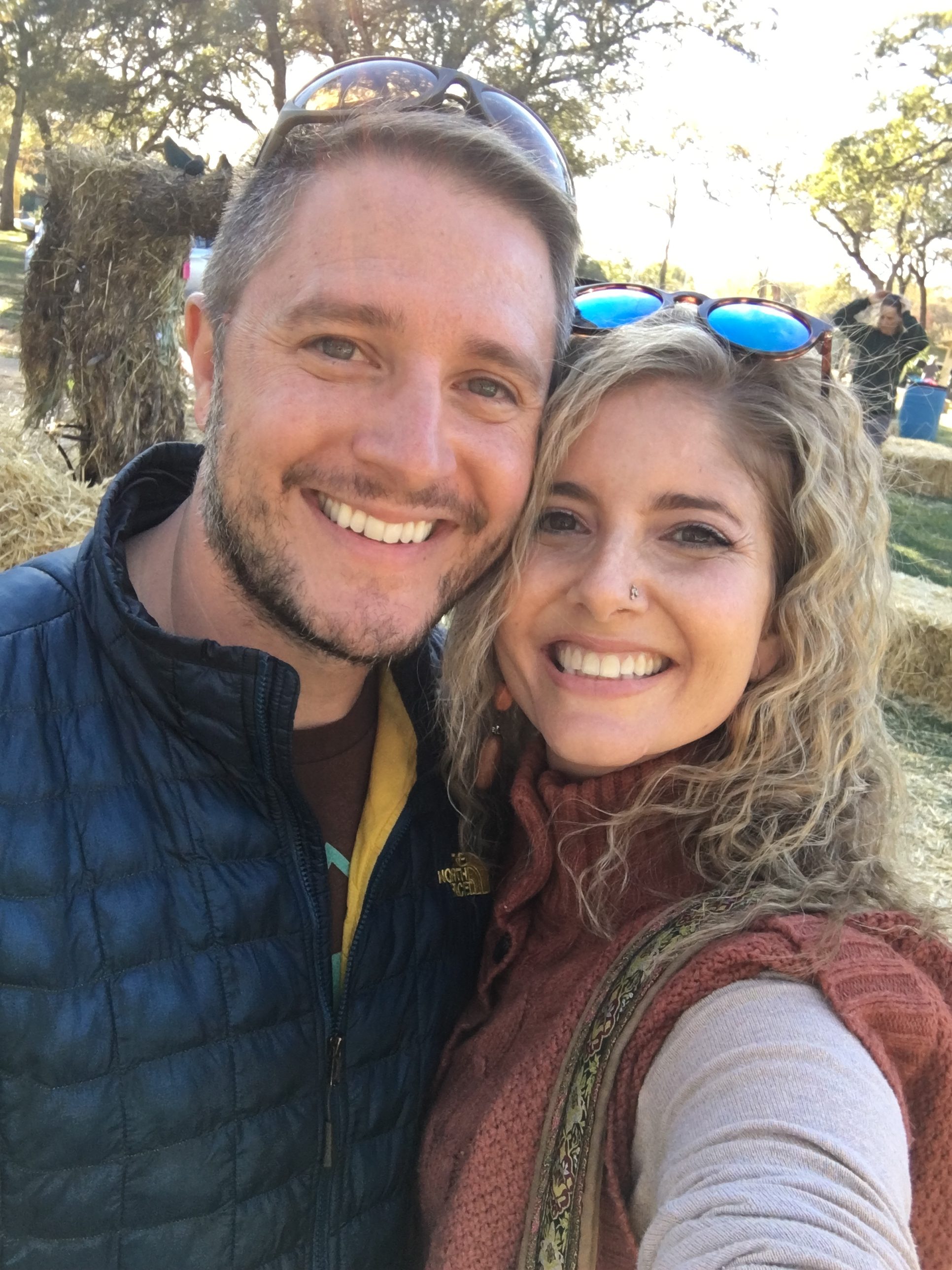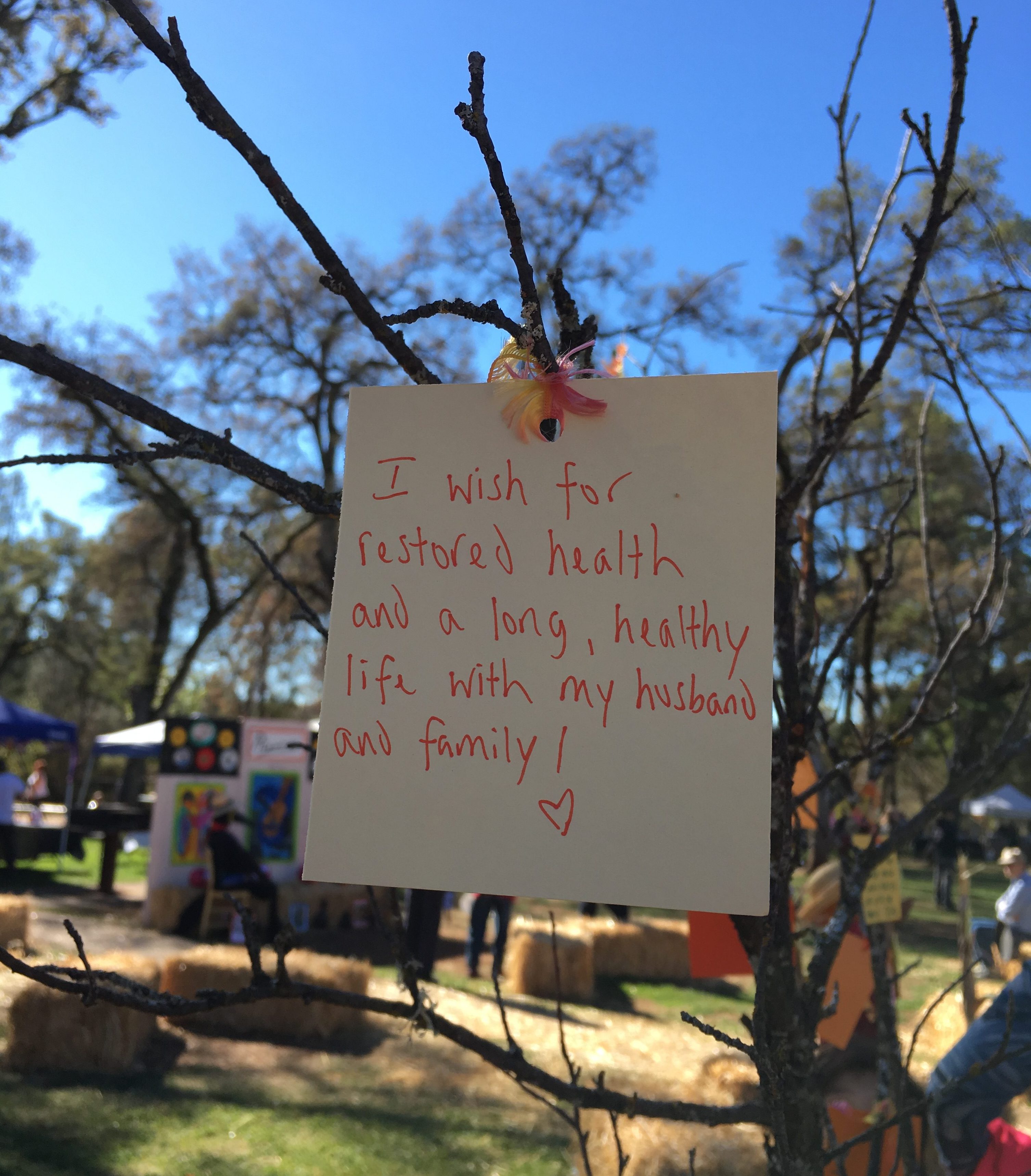
Valen with her parents the weekend of her PSC diagnosis, out at a fall community festival.
When we endure health issues, we deal not only with our emotions, but also those of others. My immediate circle of support, who are most impacted by my health, are my husband, Noah, and my parents. All three of them are very dedicated caregivers. They love me unconditionally and are affected to a great degree when I’m not doing well, but each one of them responds differently. Their reactions to my recent diagnosis of primary sclerosing cholangitis (PSC) is a perfect example of this.

Valen’s mother’s wish on a wishing tree at the fall community festival.
Following my PSC diagnosis, my parents dropped everything and immediately flew from Pennsylvania to California to be with us. Their genuine and steadfast love for all my 35 years amazes me. With the diagnosis being so fresh, I didn’t know how our time together would go since our personalities range on the pessimist-to-optimist scale. The beginning of the trip was difficult and emotional, especially for my mom. The one day we had other family over and were playing cards and laughing and smiling, she wasn’t able to get into that frame of mind. She got emotional and went outside for some fresh air. My mom felt like with what was happening, there should not be any smiles or laughter. I understood and appreciated her point of view, but to fully immerse ourselves in the news was not going to help me. My dad is impacted by my health issues as much as my mom, but he stays more on the optimistic side—at least on the outside and in front of me—and always makes me laugh. I appreciate this because I believe that laughter is the best medicine.

Valen and Noah at the fall community festival.
Then there is my dear husband Noah. I would not be able to navigate this journey as happily or positively if it were not for him. We approach life and health one step and one day at a time. We try not to worry about things that are out of our control and see ourselves as a team. Noah’s calmness, optimism, strength, humor, support and unconditional love empowers me to keep fighting. No matter what is going on, we strive to have fun and laugh every day.

Valen’s wish on the wishing tree.
By the end of my parent’s visit, I believe they got a better idea of how Noah and I handle health challenges. It was wonderful for all of us to be together to process the news and learn from one another. Noah shared something powerful with my parents and a great example of how we lead our lives; he said, “If something were to happen to Valen, I wouldn’t want to spend our last day together wallowing, but rather making it the best day possible.” It can be hard to handle others’ emotions when we ourselves are the ones going through health challenges. However, we all process and respond to things differently, and that is ok. We must respect our differences, learn from them and know that our loved ones mean well and care immensely.
How do you navigate your emotions and the emotions of your loved ones when you experience health issues?









Thanks Valen! So well put and so true! Some days I feel so frustrated and tired of coping with chronic illness in my family. But then I realize how grateful I am for each day I get to spend with them and how I wonderful it is to be supportive!
Thank you very much, Maureen!
I appreciate you reading my blog and sharing your personal sentiments on the topic. Big hugs! xo
Laughter was our best medicine no matter how bad our issues seemed to be. We took one day at a time. Sometimes it was one hour or one minute. Grateful we lived positively.
Dearest Jane,
Although I never had the privilege of meeting your dear husband, I feel like I have in a beautiful way through you and I’m very grateful for that. You will always hold a special place in my heart. Thank you for your continued support and sharing your words of wisdom. xo
I wish I had the same support ,my family tends to turn a blind eye and I feel they just don’t ask or want to know what I’m going through or the days I’m not feeling well. I feel like I’m managing and dealing with the chronic illness alone.
Thank you for sharing your story .
Dear Lena,
I’m so sorry you feel this way. Please know that you are not alone – that you have a whole community out there fighting with you and for you. Maybe it would be good to share your sentiments with your family and see how they respond. They may want to help, but just aren’t quite sure what to do. Hopefully if you communicate what you need, then they will willingly take an active role to support you. If this doesn’t give you the outcome you need, then you might want to connect with your local chapter and meet other PKD patients for support and friendship. Some of my closest friends are families I’ve met in the PKD community. Sending hugs and please let me know if there is anything I can do to help you on our journey.
Dear Lena, it can happen, specially if your relatives don’t know much about the disease. I found by experience that periodically informing them usually helps, as it does refreshing that information over time and being very frank about our highs and lows (the good and bad times we go through). Last, but not least, as an MD and a patient with ADPKD, physical exercise (after checking of course with your GP) greatly helps me to overcome the disease. Cheers!